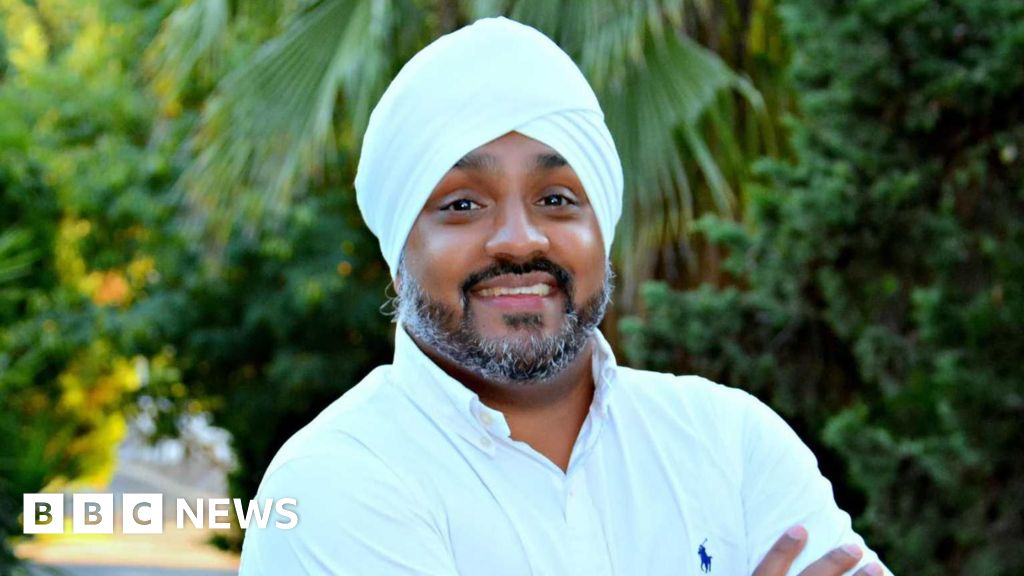Image source, Harj Gahley
- Author, Katie Waple
- Role, BBC News
A recovering gambling addict has claimed bookmakers are not doing enough to stop people from betting excessively.
Harj Gahley, from Slough, Berkshire, started gambling when he was 23 and said his problem “spiralled out of control and nearly destroyed my life”.
He compared bookmakers’ duty of care to that of a bartender being obliged to stop serving a heavily drinking customer from becoming too intoxicated.
The Gambling Commission, the industry’s regulator, said protecting customers was “at the heart of what we do”.
Mr Gahley told BBC’s Rena Annobil he vividly remembered walking into a casino with friends after a night out in Birmingham and the thrill of turning £20 into £60 after playing blackjack.
He said after that he started going to the casino every week.
“Then twice a week, then it was three times a week and eventually it was every day – and then it wasn’t just blackjack, it was roulette tables and slots,” he said.
“Then I started gambling at my local bookmakers on horses, dogs and football as it was closer to home which meant less travelling and more money to spend on gambling.”
Image source, Harj Gahley
Mr Gahley said: “[Bookmakers] don’t do enough in terms of stopping that person.
“If you were an alcoholic in a bar and you’d had too much to drink, the barman would say ‘that’s enough, no more for you’.
“They would step in, you can’t get another drink and they kick you out of the premises.
“Why aren’t bookmakers doing the same?”
He said he felt like he could not talk to anyone about his addiction – but his wife grew suspicious and began to query where all their money was going.
He described how on one day he found his pregnant wife “balling her eyes out” as he continued his destructive habit.
“I told her the truth about the gambling and the debt – it took away the guilt from lying but it was followed by a massive amount of shame,” he said.
“I was so deluded and selfish that I didn’t understand the consequences to the people around me.
“I also felt that as a Sikh, the Asian culture got in the way of my recovery as gambling is considered very taboo, if not a sin.”
Mr Gahley eventually sought out help and was able to use cognitive behavioural therapy (CBT) to overcome his addiction.
The Gambling Commission said: “Protecting consumers is at the heart of what we do as a regulator and… we announced changes which will reduce the intensity of online games, improve consumer choice over receiving gambling marketing, introduce light-touch financial vulnerability checks and tighten processes to support age verification checks in premises.”

